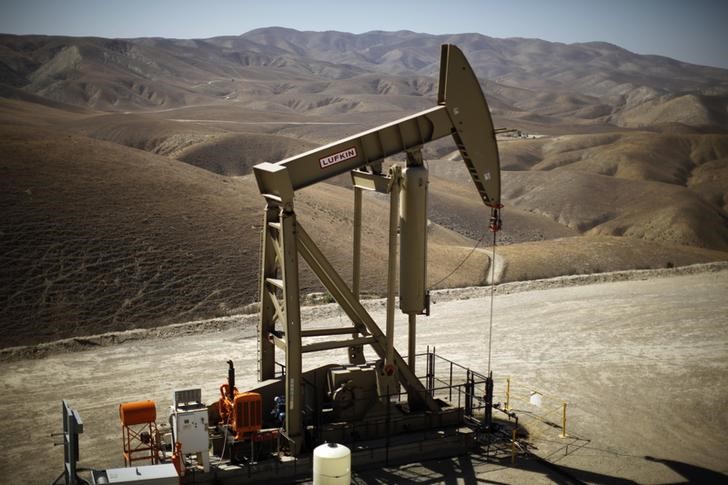Investing.com - Oil prices were mixed on Tuesday morning in Asia, with WTI crude oil slipping below the $50 mark for the first time in a year on a surge of production in the U.S. but Brent oil inching higher.
Crude Oil WTI Futures for February delivery slipped 1.02% to $49.69 per barrel at 10:16 PM ET (03:16 GMT) on the New York Mercantile Exchange, while Brent Oil Futures for February delivery inched up 0.37% to $58.99 a barrel on London’s Intercontinental Exchange.
Oil production in the U.S. is expected to reach 8.032 million barrels per day (bpd) this month and 8.166 million bpd in January, according to a report from the Energy Information Administration on Tuesday. The organisation released a forecast last week that estimated the average crude production this year would average 10.9 million bpd in the U.S. and leap to 12.1 million bpd next year.
“Crude oil prices were lower amid fears of weaker demand pushing inventories higher in the U.S. Investors also remained concerned that OPEC will struggle to keep to its agreement to reduce output. This is likely to see prices remain under pressure until there is evidence that output it being cut,” ANZ Bank told Reuters.
OPEC and its allies had a meeting in Vienna, Austria, earlier in the month during which they reached an agreement to reduce output to avoid oversupply, but the market remains sceptical.
“There’s always a question mark over to what extent the OPEC countries and Russia will or will not fulfil their promises,” Pavel Molchanov, an analyst at investment bank Raymond James & Associates, told Bloomberg.
A Bloomberg report showed that over half of the OPEC+ nations failed to comply with their original pact in November, as Saudi Arabia produced almost 1 million barrels per day (bpd) more than its target production.
Analysts said that global slowdowns in stock markets also hurt oil prices.
The Dow 30 closed the Monday session in the U.S. down 2.11%, while the Nasdaq fell 2.27%. The S&P 500 fell 2.08% to 2,545.94, the lowest level since October 2017. Investors are worried that an interest rate hike this month could slow the economy down.
